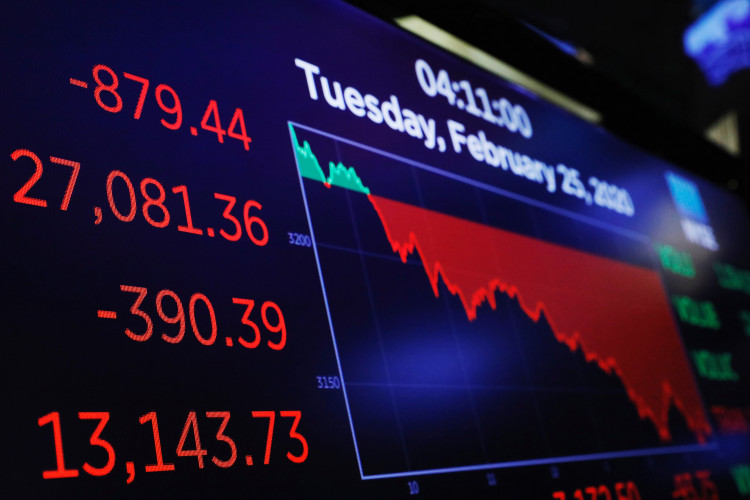JPMorgan believes that the Chinese economy can bounce back during the second half of 2020 but projections on the global economy are not as positive amid coronavirus outbreaks outside China that are just starting.
CoVID-19 will Deal More Damage than SARS
During the SARS outbreak in 2003, the economy bounced back quickly as companies in China and around the world worked fast to fill-in orders. However, some economists believe the CoVID-19 strain is a heavier burden, The Guardian reported.
A slowdown in China is expected to put brakes on supposed global growth as the country remains one of the top trading partners of other nations.
Economic analysts also pointed out that the global economy is largely dependent on China. Over the past few years, the dependence has become more apparent, indicating that any slowdown on the Chinese economy will pull down global growth.
China is the CoVID-19's origin country and it has seen the most deaths due to the coronavirus' onslaught. Companies have closed doors and shops followed suit amid fears of further infection among employees.
The closure of stores, malls, and business facilities has dealt a huge blow to the economy, raising fears about a potential recession should the coronavirus not be contained in the long run.
Consumer Spending in the US Expected to Falter
When the China-U.S. trade war the American economy, people kept spending, as if there was no economic threat. Business confidence remained stable despite some dim economic projections.
With the coronavirus situation in Europe, South Korea, and a budding spread in the United States, the situation could change, economists say, as reported by CNN.
Chief economist at Moody's Analytics Mark Zandi said that should American consumers lose faith, "and the coronavirus will be a real test of faith, then a recession is going to happen."
Zandi further argued that if a pandemic takes place and the U.S. gets hit subsequently, it could be impossible to dodge a downturn in the American economy.
Multiple U.S.-born companies have also echoed the warnings from economists. Apple, Coke, and MasterCard have all warned of disruptions in global supply chains, raising further fears for the economy.
Stock Markets React to 'Economic Pandemic' Call
Earlier this week, chief economist at Grant Thornton and Federal Reserve adviser Diane Swonk tweeted that the CoVID-19 situation is fast becoming "an economic pandemic."
Upon learning of Swonk's tweet, stock markets plummeted, with multiple shares shedding earlier gains last week over news that there has been a slowdown in coronavirus infections in China.
Among the markets affected by the prediction of a soon-to-be economic pandemic is the NASDAQ, the S&P 500, and the Dow Jones Industrial Average.
Chief global strategist at BCA Research Peter Berezin said in a note late last week that global markets were being "too complacent" about the impact of the novel coronavirus on the economy.
Berezin went on to predict that if the CoVID-19 turns into a pandemic, a recession as dramatic as the one that rattled the global economy in 2008 and 2009 could take place.
JPMorgan Retains Faith in China
Global economist for JPMorgan Chase Joseph Lupton said on Wednesday that he is expecting the Chinese economy to rebound by the second quarter of 2020.
In an interview with CNBC, Lupton explained that there could be a negative 4 percent growth for Q1 2020 in China but that a 15 percent quarter-on-quarter expansion is still possible once things brighten up in the country.
Lupton's comments came despite the International Monetary Fund's (IMF) move of slashing its growth outlook for the Chinese economy by 0.4 percentage points over the weekend.
The new JPMorgan projection is somehow considered as a ray of hope for China-dependent economies reeling over the coronavirus onslaught outside the origin country.






